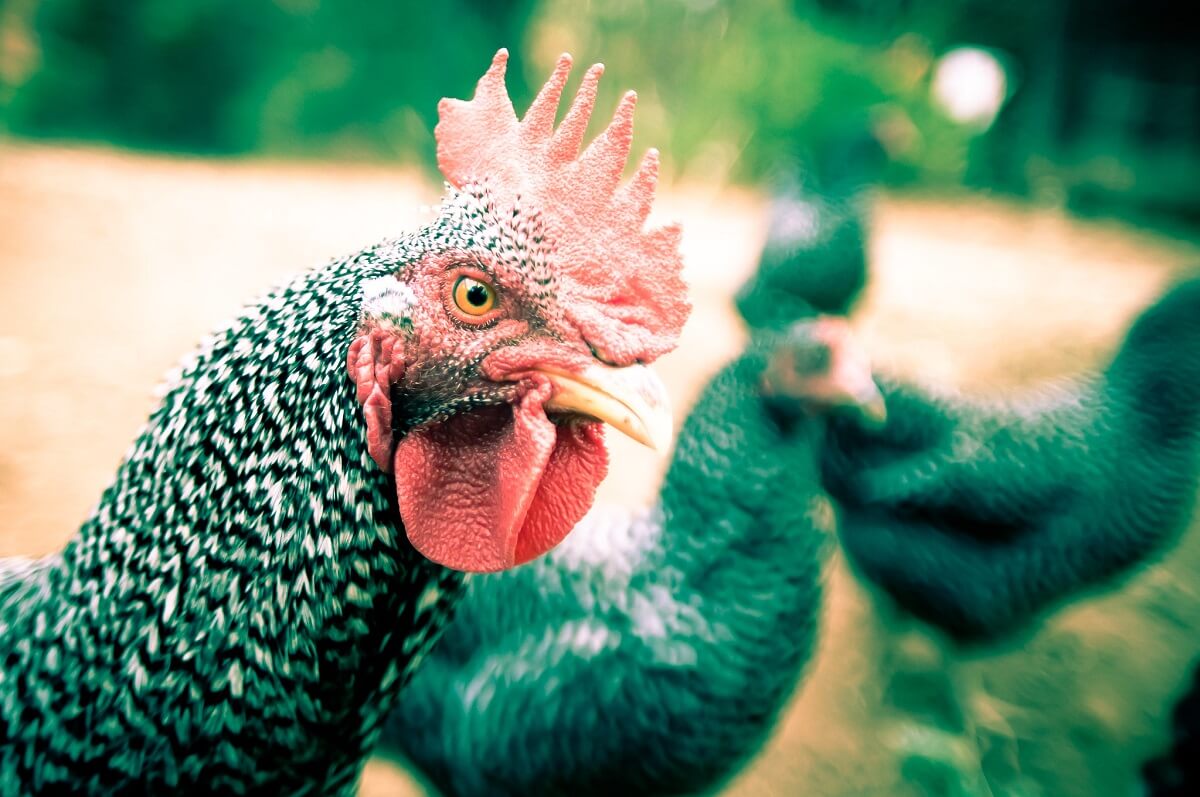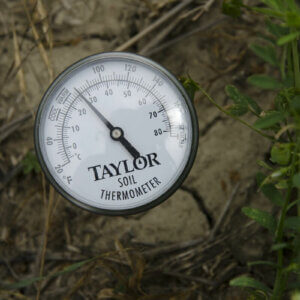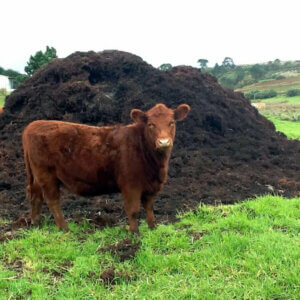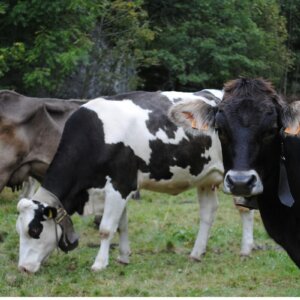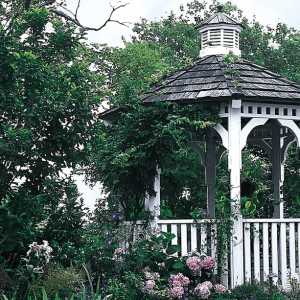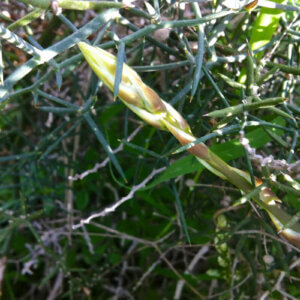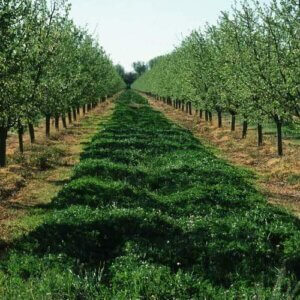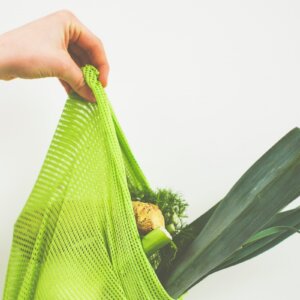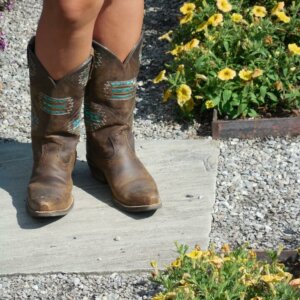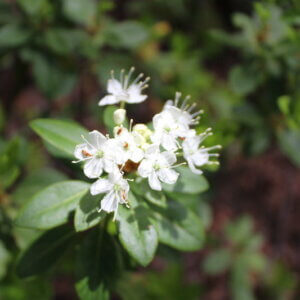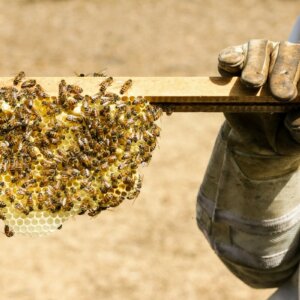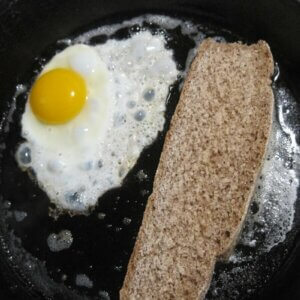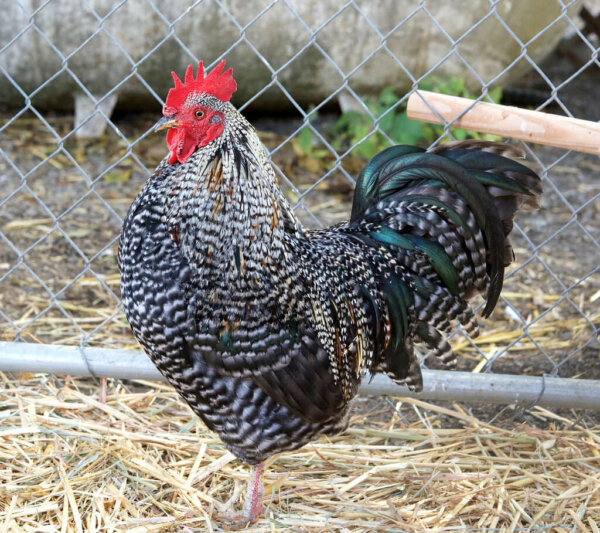
- Purpose: Dual-Purpose
- Eggs: Brown
- Egg Size: Large
- Color: Black & White
- Comb Type: Single Comb
The Plymouth Rock is the one-chicken-fits-all sort of bird that truly earned its popularity. In the years leading up to World War II, it was the most widely-kept bird in the United States.
Hardy, docile, and quite productive, there’s a lot to gain from keeping a flock of these stripey beauties on your farm.
If you are able to keep a rooster with your flock, a Plymouth Rock rooster may be the one to choose. Not only will he contribute his hardy genetics to your future birds, but he may be a top-notch protector, too.
Additionally, many Plymouth Rock roosters have a reputation for being calm enough to keep out of the roasting pan.
Of course, every rooster is an individual, so use good sense when gauging which of your roosters you can turn your back to.
Characteristics
Sometimes referred to as Barred Rock or Plymouth Barred Rock, these iconic birds are known as “the kind of chickens Grandma used to raise.”
With distinctive white and black barred feathers, a bright red single comb, and a reputation for being long-lived, friendly, dependable, meaty, and good at producing eggs…is there anything this chicken can’t do?
Cons Are Hard To Come By
It’s hard to find something negative about the rock-solid Plymouth Rock, particularly in terms of its usefulness to the everyday homesteader or backyard farmer. The only things that one might want to watch out for are the densely-feathered breed’s susceptibility to extremely hot summer temperatures.
Some keepers report that their birds are prone to bullying. In terms of the pecking order, Plymouth Rocks are at the higher end of the spectrum, so be wary when introducing gentle, submissive breeds to a mixed flock.
What’s The Yield?
Plymouth Rock hens are dependable egg-producers with a rate of at least 200 large, brown eggs a year. They also typically lay year-round. When acquiring your bird it’s worth investigating what strain of chicken you have.
There are three strains of the breed –exhibition, industrial, and the old heritage birds. The heritage strain is smaller but is known for egg production, fertility, and viability of eggs.
As a dual-purpose bird, these chickens are also fine at producing quality meat. They are a large size, with roosters able to reach a tasty 9.5 pounds and hens usually hitting 7.5 pounds.
This breed is also gentle and particularly long-lived, sometimes able to live far beyond a decade. I personally knew a Plymouth Rock hen that reached a stunning 15 years of age. In terms of choosing a chicken breed as a pet, the active, people-loving Plymouth Rock could be a delightful choice.
Similar Breeds
Very similar in appearance to the Dominique, Plymouth Rock chickens were actually developed from the much older Dominique stock. They lay more eggs and are generally larger in size.
The only real giveaway if you put them side-by-side, however, is the single comb of the Plymouth rock –Dominiques have a rose comb.
Pictures Of Plymouth Rock Chickens
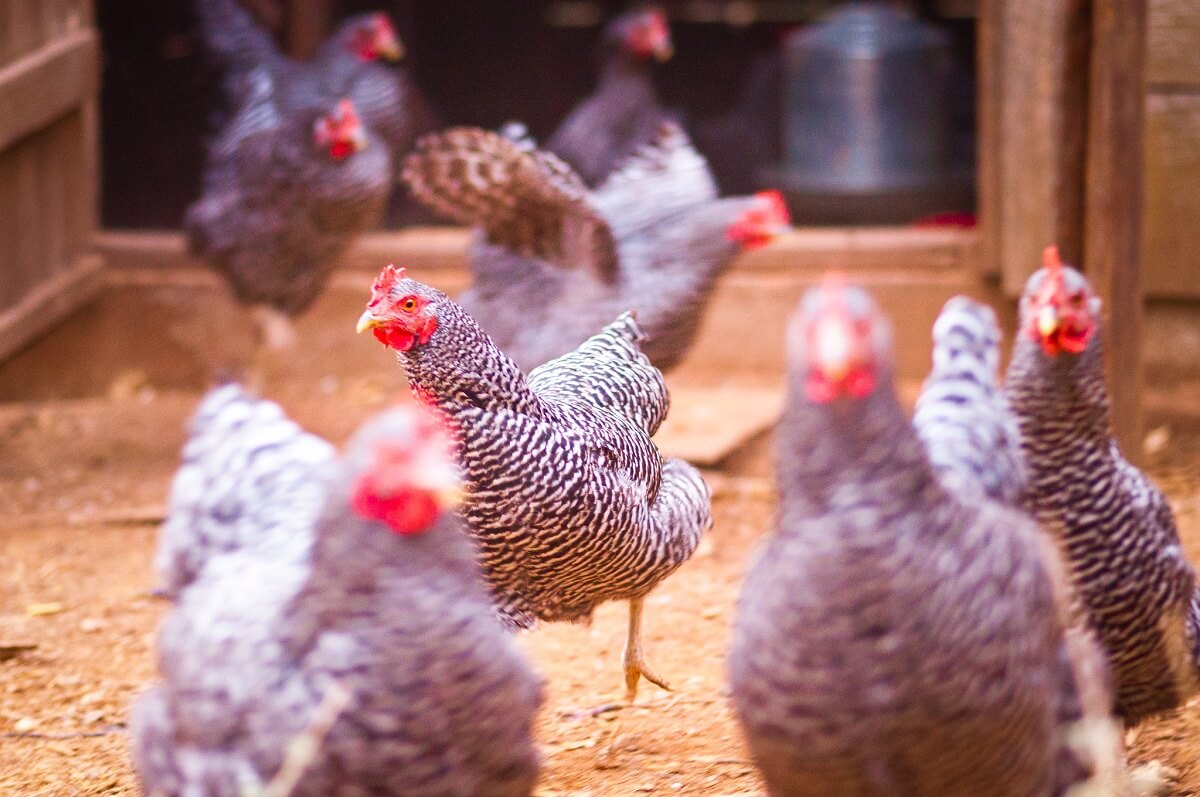
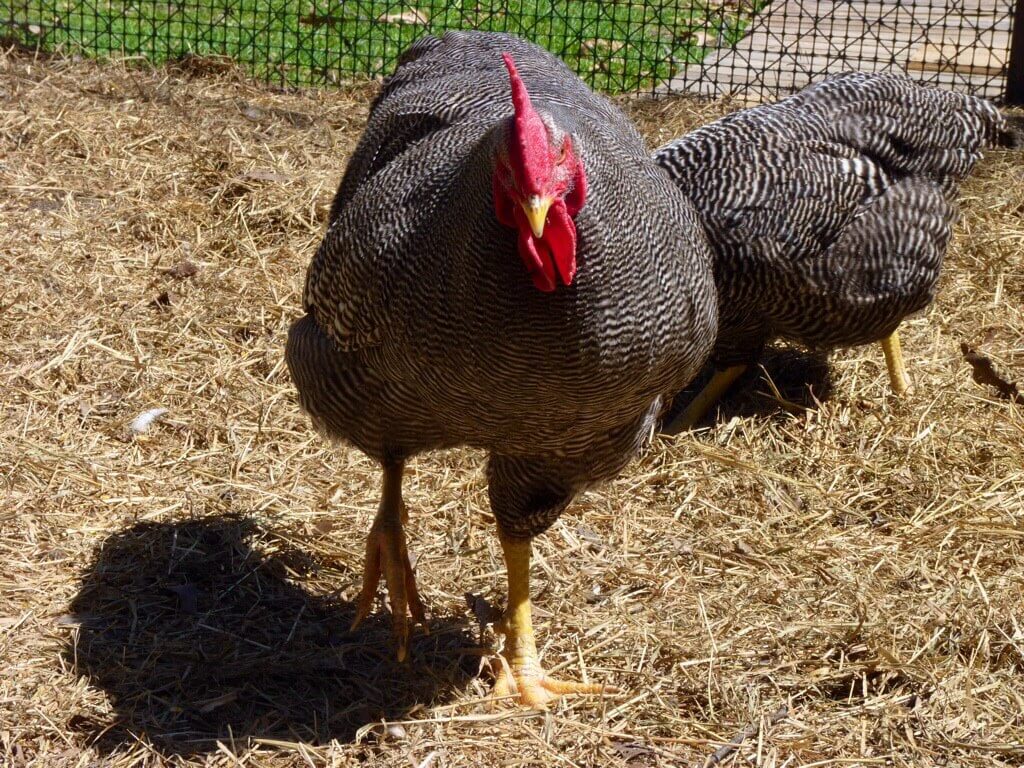
Resources
- Plymouth Rock, My Pet Chicken
- Poultry Breeds – Plymouth Rock Chickens, Oklahoma State University
- Barred Rock Chicken, Cackle Hatchery
- Barred Plymouth Rock Chickens: Heritage Poultry Breeds, Mother Earth News
- Plymouth Rock: A Comprehensive Guide, Backyard Chicken Coops
- Chicken Breeds: Plymouth Rock or Barred Rock, The Spruce
- Plymouth Rock, BackYard Chickens
- Plymouth Rock Chicken, The Livestock Conservancy
- Pros & Cons Of Keeping Plymouth Rock Chickens, Types Of Chicken
- Plymouth Rock Chicken, Roy’s Farm
- The Nitty Gritty on Barred Rock Chickens, Pet Chicken
- Chicken Help, My Pet Chicken

